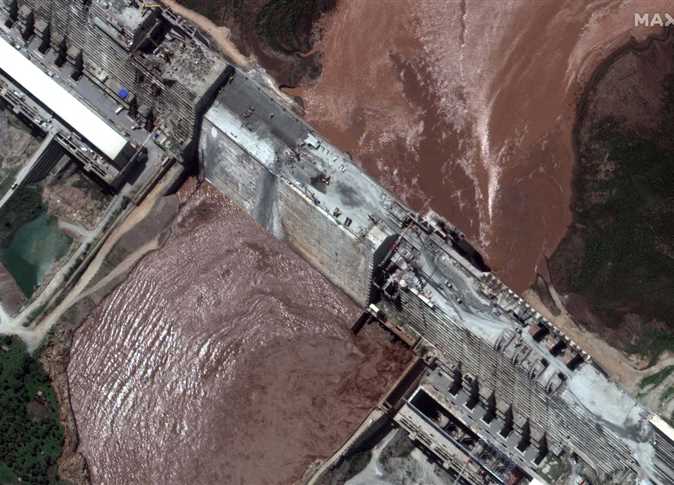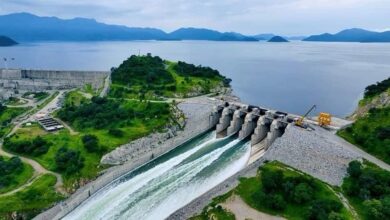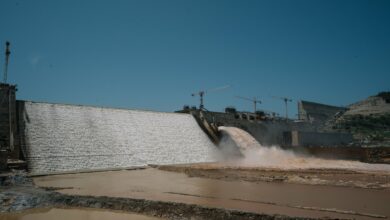
Egyptian President Abdel Fattah al-Sisi on Saturday affirmed Egypt’s firm position on the Grand Ethiopian Renaissance Dam file and the protection of Egypt’s water security.
The president’s statements came during a meeting at dawn with students and faculty staff members of the Military Academy.
In a statement, the Egyptian presidential spokesperson Bassam Rady said that Sisi reviewed Egypt’s position on foreign policy issues and issues related to the Middle East region.
The Egyptian Foreign Ministry said that Egypt received a message from Ethiopia on July 26 stating that Ethiopia is continuing to fill the reservoir of the dam during the current flood season, a measure that Egypt rejects and considers a violation of the obligations imposed by international law on Ethiopia.
Egyptian Foreign Minister Sameh Shoukry sent a letter to the President of the United Nations’ Security Council on July 29 to register Egypt’s objection and complete rejection of Ethiopia’s continued filling of GERD unilaterally without reaching an agreement with Egypt and Sudan on the filling and operation of this dam.
Shoukry called on the Security Council to assume its responsibilities in this regard, including by intervening to ensure the implementation of the presidential statement issued by the Council, which obligates the three countries to negotiate in order to reach an agreement on GERD at the earliest possible opportunity.
Fruitless talks
Egypt and Sudan say they want a legally binding agreement on operating the dam, while Ethiopia says any pact should be advisory.
Egypt and Sudan consider the dam a threat to their vital water supplies, while Ethiopia considers it essential for development and doubling its electricity production.
The downstream nations fear possible blows to water facilities, agricultural land, and overall availability of Nile water.
Negotiations over the dam between Egypt, Ethiopia, and Sudan have stalled for years, with the three parties ultimately failing to reach any agreements.
The disputed dam is the largest hydroelectric project in Africa, with a cost of more than four billion dollars.


